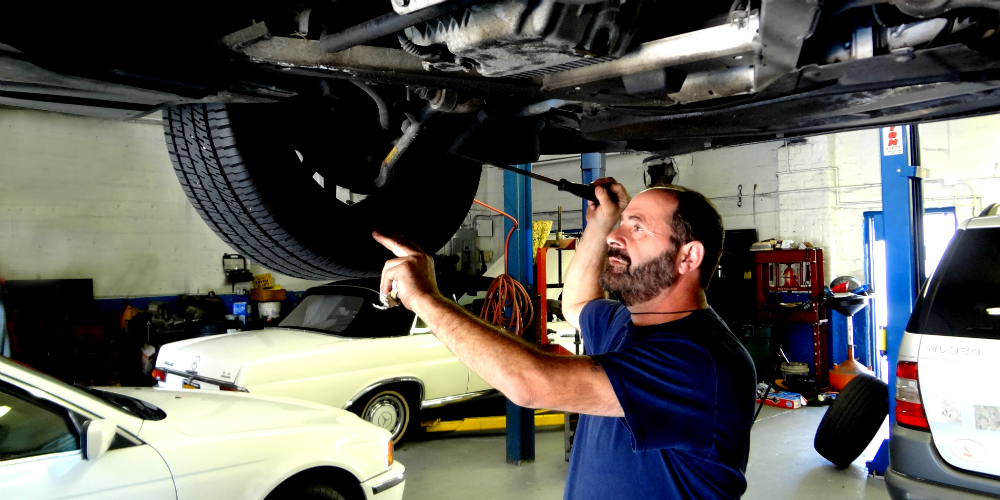All Categories
Featured

Your car's engine is the heart of your automobile, and maintaining it in top condition is crucial for ideal performance and longevity. Routine engine tune-ups are an excellent way to maintain your cars and truck's health and wellness, enhance fuel efficiency, and prevent pricey repairs in the future. Whether you're an auto enthusiast or a person that simply wishes to keep their car running efficiently, these engine tune-up suggestions will certainly aid you obtain the most out of your auto.
- Replace Flicker Plugs. Ignition system play a critical duty in beginning your engine and ensuring smooth combustion. Gradually, spark plugs can end up being dirty or broken, leading to misfires, decreased gas effectiveness, and harsh idling.
Throughout an engine tune-up, check and replace your spark plugs if needed. Many lorries call for brand-new trigger plugs every 30,000 to 100,000 miles, depending on the type. Routinely changing trigger plugs ensures proper ignition and optimal engine efficiency.
- Examine and Tidy the Air Filter. The air filter avoids dirt, dirt, and particles from entering your engine. A clogged up or filthy air filter limits airflow, causing your engine to work more difficult and shed more fuel.
Examine your air filter throughout a tune-up and replace it if it's dirty. In dusty settings or areas with hefty contamination, you may need to change the air filter much more frequently. A clean air filter can boost gas efficiency and prolong the life of your engine.
- Evaluate and Replace Belts and Hoses. Belts and tubes are important for numerous engine functions, such as powering the alternator, water pump, and cooling system. In time, these parts can fracture, battle royal, or wear out, potentially leading to breakdowns.
During a tune-up, check belts and tubes for indications of wear and change them if needed. Replacing these components proactively can save you from expensive fixings and prevent unexpected failures.
- Clean the Fuel System. Your gas system, including the fuel injectors and fuel lines, can accumulate dust and carbon deposits in time, decreasing engine performance. Cleaning up the gas system during a tune-up helps enhance performance and gas economy.
You can utilize a fuel system cleaner or have an expert mechanic execute a more thorough cleansing. This step is especially vital for older lorries or autos that regularly drive in stop-and-go traffic.
- Examine the Battery and Charging System. A healthy battery is vital for starting your engine and powering electric components. During a tune-up, inspect the battery terminals for deterioration and make certain the connections are limited.
Examine the battery's voltage and replace it if it reveals indications of weak point. Furthermore, have the alternator and charging system tested to guarantee your battery stays billed during procedure.
- Change the Engine Oil and Oil Filter. Oil adjustments are a basic part of engine upkeep. Engine oil lubricates relocating parts, reduces rubbing, and aids regulate engine temperature level. In time, oil comes to be contaminated and loses its performance.
During a tune-up, change the engine oil and oil filter to maintain your engine running efficiently. Follow your car's maker suggestions for oil kind and modification intervals.
- Check the Cooling System. The cooling system prevents your engine from overheating. With time, coolant can deteriorate or end up being infected, lowering its efficiency.
Inspect the coolant level and problem during a tune-up, and flush and replace it if needed. Examine the radiator, water pump, and hoses for leaks or damages. A properly maintained air conditioning system helps your engine run at the appropriate temperature and stops getting too hot.
- Examine the Ignition System. A faulty ignition system can cause starting problems and lowered engine performance. During a tune-up, inspect the ignition coils, representative cap, and rotor (if appropriate) Replace any parts that reveal indications of wear or damage to make certain smooth and dependable engine procedure.
- Pay Attention for Uncommon Sounds. During a tune-up, seize the day to pay attention for any type of uncommon engine noises, such as knocking, ticking, or hissing. These sounds can suggest underlying problems, such as valve issues, loose components, or exhaust leaks. Attending to these troubles early can protect against extra substantial damage.
- Usage High Quality Parts and Fluids. When performing an engine tune-up, constantly use top quality parts and liquids that fulfill your car maker's requirements. Low-cost or inaccurate parts can compromise your engine's efficiency and dependability.
Verdict: A Well-Tuned Engine is Secret to Durability. Normal engine tune-ups are essential for preserving your auto's performance, effectiveness, and dependability. By changing used elements, cleaning up crucial systems, and attending to possible problems, you can keep your engine running efficiently for years to find. Whether you're doing it on your own or counting on a trusted mechanic, investing in tune-ups is a wise method to protect your lorry and delight in a safer, smoother experience.
Latest Posts
Reliable Commercial Roofing Services by Weathercraft
Host Breathtaking Soirées at Deauville Inn: Choose from 6 Handpicked Rooms
Discover WyHy FCU – Top Benefits for Your Money Goals
